Sergey Brin
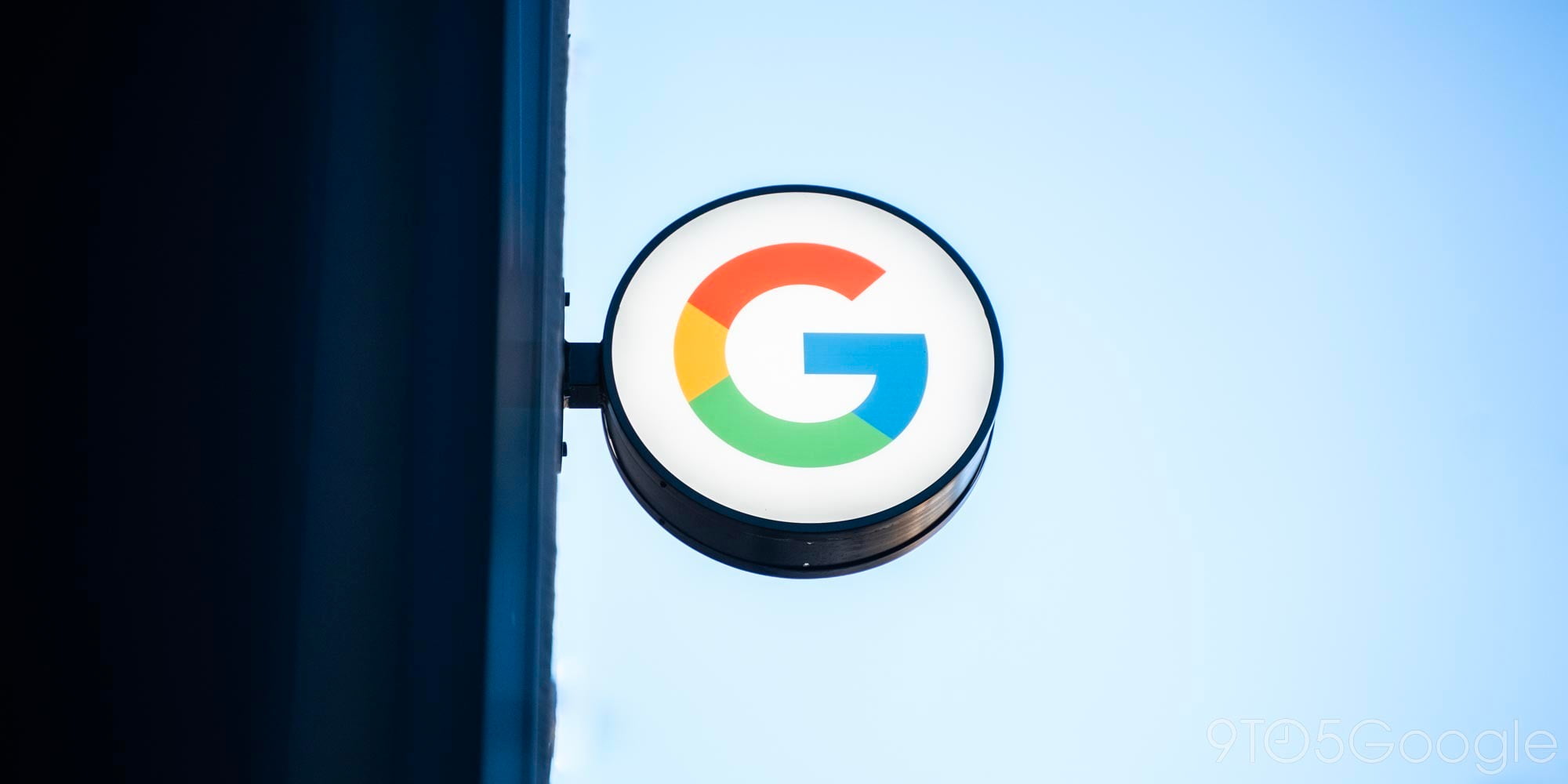

Last year, Larry Page and Sergey Brin stepped down from Alphabet. The Google co-founders have always occupied themselves with various side projects, with the latter having a “rapid response organization” that provides humanitarian aid around the world in a high-tech fashion.

Larry Page and Sergey Brin announced this afternoon that current Google CEO Sundar Pichai is also taking on the role of Alphabet chief executive. This is described by the co-founders as a move to simplify management.

Back in April, it emerged that Larry Page and Sergey Brin had not attended a single Google town hall in 2019. A new report today revealed that the co-founders made an appearance at the weekly company meeting last month.

Google has historically maintained an open culture with employees having a lot of input into internal affairs. One aspect to this is a weekly “TGiF” town hall that is a company-wide broadcast. However, founders Larry Page and Sergey Brin haven’t attended these meetings in 2019.

Over the weekend, Google Maps co-creator Bret Taylor shared a funny anecdote about the early days of the product. The Twitter thread tells the story of how Sergey Brin wanted to name what is widely known today as the “Satellite” map view “Bird Mode.”

Following last week’s Q1 2018 earnings, Alphabet has published its annual Founders’ Letter. Penned this year by Sergey Brin, it traditionally serves as an update on current progress and charts the company’s future. In 2017, machine learning is unsurprisingly the overarching narrative.

Last November, the Securities and Exchange Commission asked Alphabet to further clarify its unique corporate governance structure. Implemented in 2015 as part of a massive reorganization, the SEC wanted insight into the decision-making process within the parent company and its “Other Bets.”

News surfaced last month that Sergey Brin was building a “massive airship” at a NASA research center in Mountain View. According to The Guardian, the Google co-founder wants the ship to deliver supplies, as well as double as an “air yacht.”

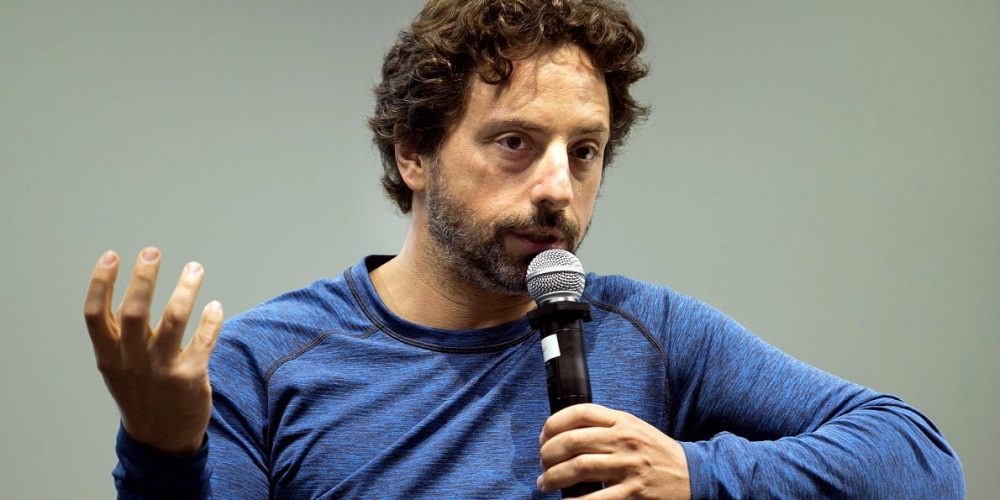
According to a new report from Bloomberg, Google co-founder Sergey Brin has secretly been building a “massive airship” at a NASA research center. At this point, it’s unclear if this is something Brin hopes to one day turn into a business, or if it’s just a hobby side-project…

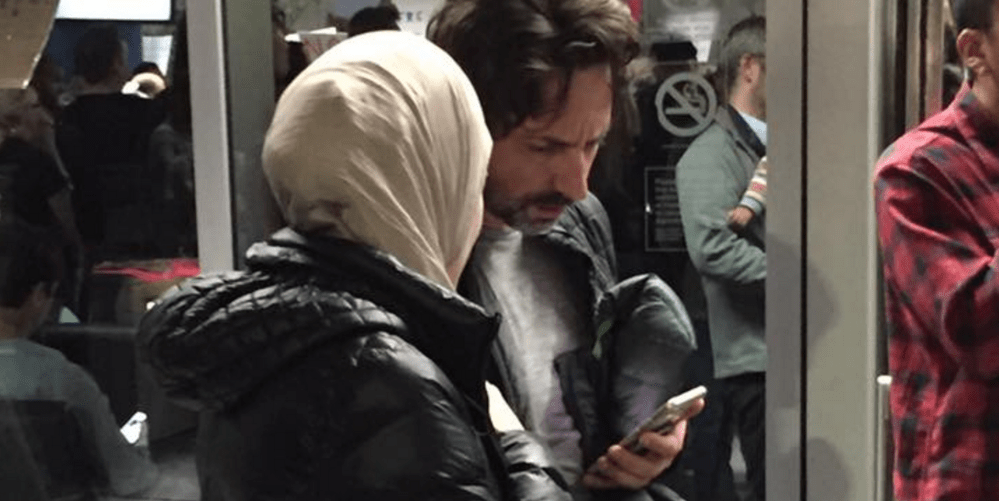
Following President Trump’s executive order on immigration, several protests have arisen around the country. With the tech industry especially impacted by the halt, Google co-founder Sergey Brin joined protesters Saturday night at San Francisco International Airport.


Every year, Larry Page and Sergey Brin write a Founders’ Letter to inform stockholders of recent developments and their vision for the future. For 2016, Page had recently-anointed Google CEO Sundar Pichai write the letter as a majority of ‘bets’ are under his purview. The letter focuses on six main areas.

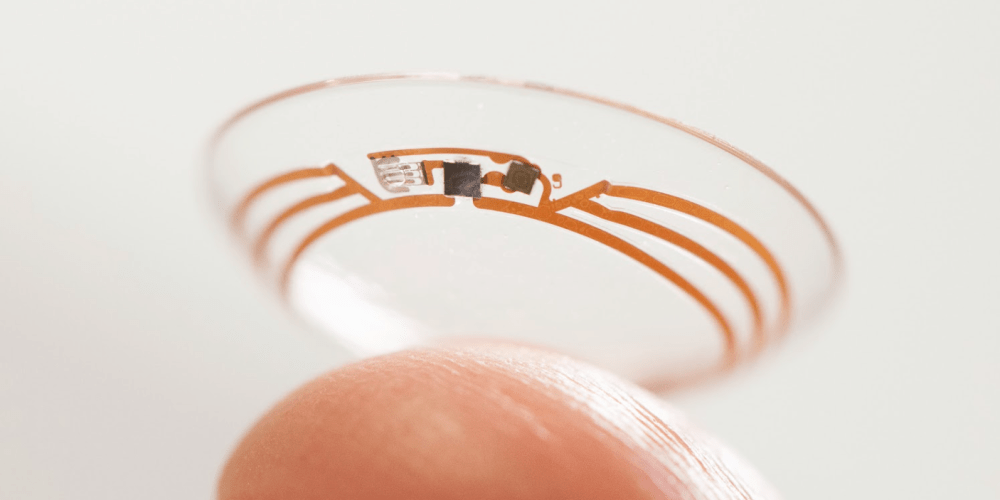
There has been quite a bit of press surrounding the behind-the-scenes aspect of Alphabet companies over recent weeks, mainly centered around Nest and Tony Fadell. Earlier today, it was reported that Fadell appeared at Google’s all-hands meeting two-weeks ago to address the stream of negative press. In addition to Fadell defending Nest, Re/code now reports that executive Sergey Brin also defended the company’s life science unit, Verily, at the meeting.

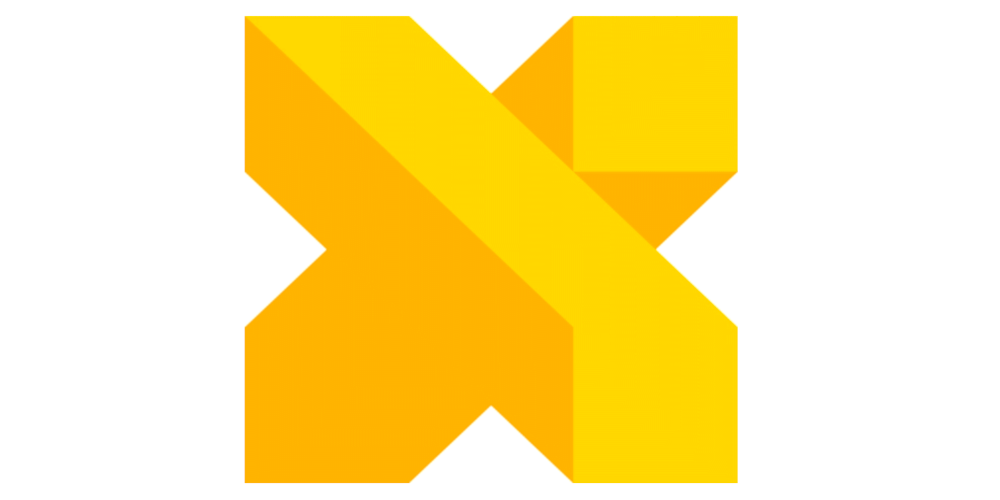
Google’s secretive Google X division is getting a new focus at the company that includes rebranding and a new logo, Recode reports.
Among the changes for Google X, according to the report, is a rebranding to simply “X” and the new butter-like yellow logo pictured above. But perhaps more importantly, behind the scenes there will also be a renewed focus including a team put in place specifically to “steer moonshots through the life-or-death throes.”
Expand
Expanding
Close

Google’s X lab is famous for its ambitious undertakings building self-driving cars and balloons that beam Internet to the furthest reaches of the planet. Now all of its life sciences projects are moving on to greener pastures.

Yesterday, Google announced a massive restructuring and the creation of a new parent company, Alphabet. While Google will still focus on the traditional internet-related products like Chrome, Android and web search, other company’s will be set up to focus on more exploratory ventures. Along with the announcement yesterday, Alphabet launch its new domain: abc.xyz. Unsurprising to anyone, this new domain is already 100% blocked in China.
The news comes via GreatFire, a site which actively and constantly monitors URLs blocked within China’s borders. Alphabet’s home page has been blocked since it went live yesterday. Although it could be easy to see this as a pre-emptive, and active blocking against Google from China, it’s more likely that the country already blocks any site bearing Google’s SSL certificate. If that’s the case, then it doesn’t matter what site Google launches, it’s blocked before it even goes live in China.
Google and China’s relationship is an interesting one to say the least. Which is to say: They don’t really have one. Google’s products and services are blocked almost completely. Android phones in the mainland don’t have access to Google’s Play Store to download apps, and Play Services are a complete no go. It’s one of the reasons it’s been rumored the company could be partnering with Huawei to launch the next Nexus smartphone. Google apparently hopes it can use Huawei’s Chinese influence to build its own presence and launch services in China.
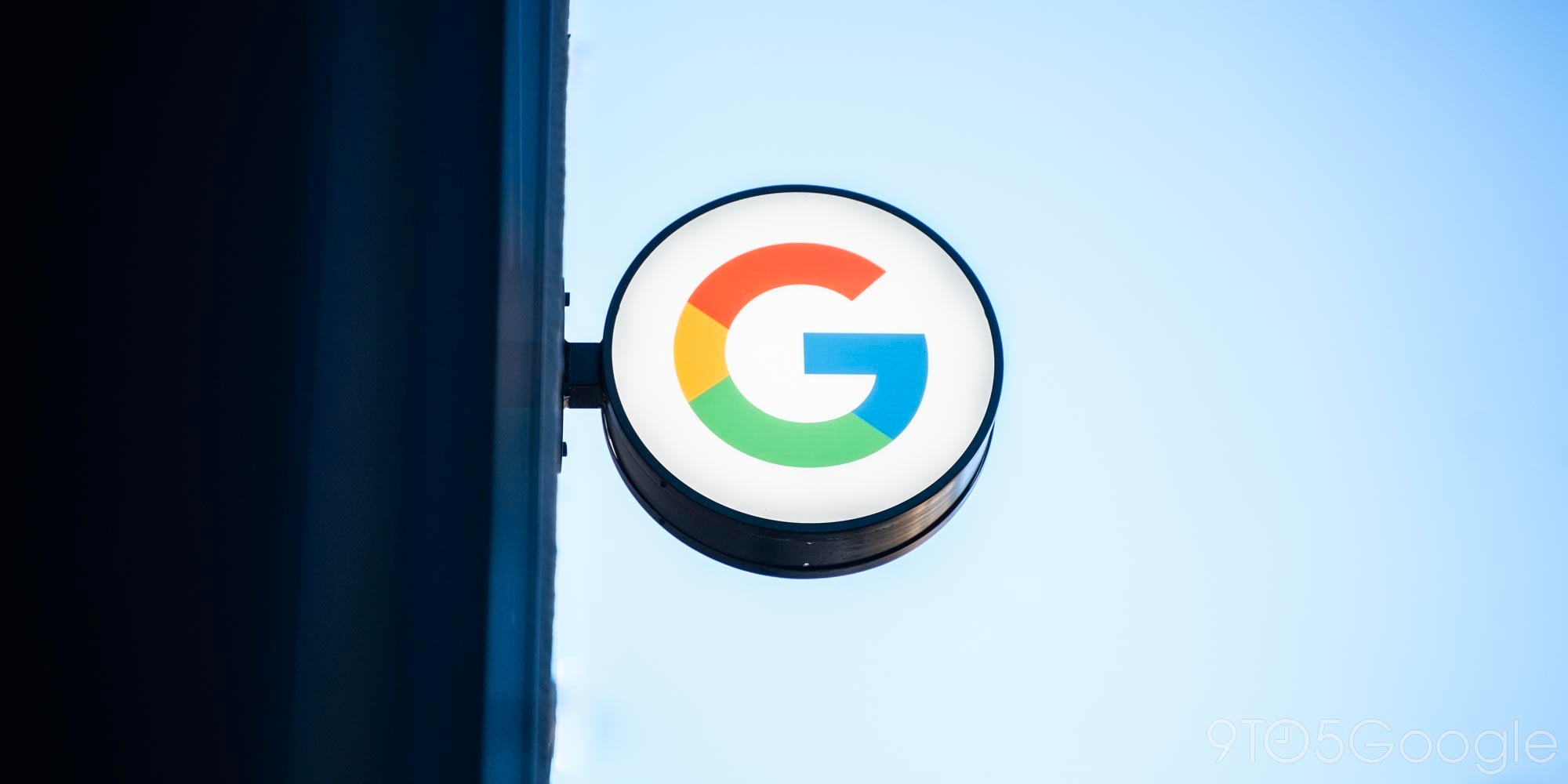

Marissa Mayer, current CEO of Yahoo and former executive at Google, received some important advice from Google founder Sergey Brin as she walked out the door to join the Sunnyvale, California company in July, 2012.
While she tends to be more iterative and careful when it comes to making decisions, long-time friend and colleague Sergey wanted to remind her that there’s also value in being bold.
“As an engineer, my tendency is to be more conservative—to be more iterative. Even on innovation, I would rather bring out an early product and slowly make it better,” she told Fortune in a recent interview.
“Right as I left, I had my hand on the door. I said “Sergey, it’s time for me to go. I gotta go.” And I had my hand on the door, and he said “Marissa, wait.” And I turned around, and he looked at me and said, “Don’t forget to be bold.””
Mayer says that this encounter has helped her make what she hopes will be truly transformational decisions at Yahoo. Especially in those big decision moments, like deciding to acquire Tumblr, she said that she hears these words replaying in her head every day.
Watch the full video interview below:
[protected-iframe id=”e62d55c2007b14be4756a10914299018-22427743-37434152″ info=”http://c.brightcove.com/services/viewer/federated_f9?isVid=1&isUI=1″ width=”480″ height=”270″]

Google might not have an official presence as an exhibitor at CES, but it does have its people on the ground checking out the new products from both its partners and competitors. That includes top Googler Sergey Brin who was spotted in the photo above via +Tim Moore on Google+.
Moore works with Rochester Optical, the company behind the lenses used in the Epson Moverio smart glasses Brin is trying in the photo. Rochester Optical also previously announced plans to build accessories for Google Glass as well, Google’s own smart glasses and competitor to the Epson Moverio BT-200 that launched last year for $699.
Expand
Expanding
Close

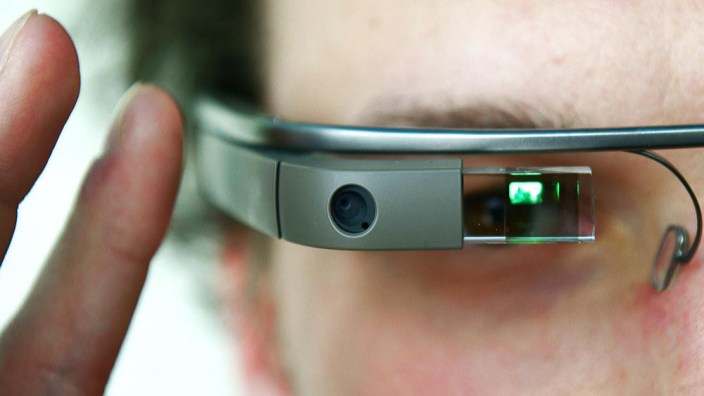
Since its initial unveiling more than two years ago, one of the biggest questions surrounding Google Glass has been its commercial viability. Reuters today has published a report, yet again questioning the long-term success opportunities of Glass. Sergey Brin, the head of Google’s X Lab which is responsible for Glass, was seen this weekend in public not wearing a pair. The Google executive remarked that he had left his pair in the car when asked by a reporter.

When Google showed off its built-from-scratch self-driving car with no steering-wheel or pedals, the world’s press weren’t the only people watching: California’s DMV also had its eye on the vehicle.
A new rule taking effect in California from 16th September says that self-driving cars are only legal on public roads if a driver is able to take “immediate physical control,” reports the WSJ. That means that Google is going to have to make a couple of small adjustments to the cars: fitting that missing steering-wheel and pedals.
[Google] said it plans to comply with the California rule by building a small, temporary steering wheel and pedal system that drivers can use during testing.
“With these additions, our safety drivers can test the self-driving features, while having the ability to take control of the vehicle if necessary,” Google spokeswoman Courtney Hohne said.
The company will initially be testing the fleet of 100 prototype vehicles on private roads.
Google had also wanted to test other types of autonomous vehicles, including motorcycles, but the DMV refused permission. California DMV official Bernard Soriano did, however, state that they are drafting rules that allow members of the public to operate driverless cars within a couple of years – and by that time, no steering-wheel or pedals will be required.
Only a handful of US states allow driverless cars on the road at present, but others are likely to follow California’s lead, and other countries likewise.


Google’s vision (sorry) of smart contact lenses that monitor glucose levels in diabetics are one step closer to reality as it signed a commercial licensing deal with Alcon, the eyecare division of the pharmaceutical giant Novartis.
The lens uses sensors to measure the glucose content of tears and transmit that data to a smartphone app that automatically alerts users if their levels are too high or too low. Google reported back in January that it has completed several clinical trials, and that it would be partnering with other companies to manufacture the devices …
Expand
Expanding
Close

[youtube=https://www.youtube.com/watch?v=Wdnp_7atZ0M]
In a ‘fireside chat’ with leading venture capitalist Vinod Khosla, Google co-founders Larry Page and Sergey Brin talked about the moment they thought they’d sold the company to him for $1.6M.
There were four of us at the time – four grad students at Stanford. I remember, we fired off this note to Vinod. It was just a little e-mail that said, “We really don’t want to sell, but for $1.6 million, you got a deal.” And a few minutes later, we got a reply that said, “That’s a lot of dough, but ok we’ll do it.” That’s characteristic Vinod there. So then, ten minutes later, Scott – one of the four of us – comes running in, laughing. Huge grin on his face. He had faked the reply and back then, the ethics around faking emails weren’t quite the same. Anyway, so he had that big joke. The deal obviously never came to fruition, and we went our own way to build search …

While on stage at the Code Conference, Google co-founder Sergey Brin talked Google Glass with Re/Code editors Walt Mossberg and Kara Swisher. When asked about the commercial availability of the product, Brin said that he hopes it will be available to all consumers by the end of the year. He remarked that “Google Glass will be a commercial product this year…plus or minus.” The timeline for Glass has been a bit cloudy since its announcement, but hopefully Google finally follows through this time around.

We’re live on the scene at the Code Conference, and now that Microsoft CEO Satya Nadella has finished up his interview and demonstration, Google co-founder and Google[X] leader Sergey Brin has entered the hot seat. Re/code’s Walt Mossberg and Kara Swisher are interviewing Brin, and you can find our live updates from the interview below:


In Google’s annual Founders Letter, Larry Page revealed that Google was handling more than 100 billion searches a month, but said that the service was still “a million miles” from the service he’d like to see Google become.
In many ways, we’re a million miles away from creating the search engine of my dreams, one that gets you just the right information at the exact moment you need it with almost no effort. That’s partly because understanding information in a deep way is a hard problem to solve …